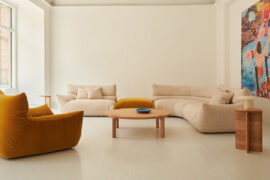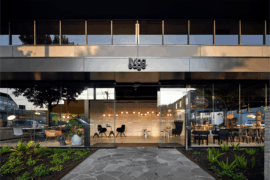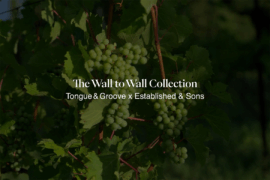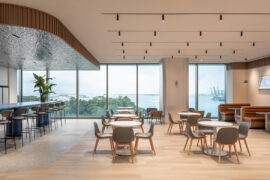Evolving beyond a market platform for contemporary Southeast Asian art, Art Stage Singapore adopts a new course, increasing focus on meaningful content to generate thought-provoking discourse on current affairs and its impact on making and buying art.

Kent Chan, Bright Lights (Better Life Later), 2016, Neon bulbs, acrylic sheet, 122 x 244 cm, Presented by Grey Projects. Image courtesy of Art Stage Singapore
January 17th, 2017
While the grounds of Art Stage Singapore hosted significantly fewer exhibitors this year, the seventh edition demonstrated how the contemporary Southeast Asian art fair has repositioned itself as more than a commercial platform to offer more in-depth and curated content and forums for the exchange of ideas.
Lorenzo Rudolf, the Founder and President of Art Stage Singapore, notes that the world is now living in “dramatically changing times” and facing economic, political and social crisis, which is affecting the art market. “We have to be clear that art can no longer be seen as mere merchandise or commodity. We have to look at art for what it really is. In essence, it is a piece of culture,” he explains.
“For Art Stage Singapore, it means very clearly that we have to focus even more on content and to show art in context,” he says. Art Stage 2017 made a concerted effort to portray this new course with the Southeast Asian Forum exhibition and lecture series, which returned for the second edition. Twenty-four compelling works by 23 artists revolving around the theme of capitalism were positioned at prime fair spots. These artworks, beyond commercial intent, set an empathetic and humanistic tone for the fair and what to expect in future editions to come.
A case in point, If Not, Accelerate (2016) and Bright Lights (Better Life Later) (2016) by Singapore- and Amsterdam-based artist Kent Chan portrayed the issues of migrant labour in Singapore with a moving assemblage of videos, text and sculpture that prompted viewers to consider Singapore’s large migrant labour population and their ambiguous relationship with the city.
Indonesian artist Tintin Wulia drew upon her experience of living within a border in limbo to conceive Untold Movements —Act 1: Neitherland, Whitherland, Hitherland (2015), a moving piece that cast light on the geopolitical border as a place with a secret network of displaced lives. At Art Stage 2017, viewers experienced the haunting 32-channel surround sound installation composed with original spoken word poetry as told by 15 narrators in various languages.
Questioning the growing emphasis on military spending at the expense of social needs in his home country, Thai artist Anon Pairot’s Weapons for the Citizen (2016) – composed of stuffed fabric toy guns made by Thai craftsmen with textiles sourced from all over Thailand – communicated the “banalisation of weapons and what they symbolise – power and death” under the disguise of security.
Showcased under ‘Public Artworks’, Phunk’s 7.2-metre wide New Hope of an Old World (2016 – 2017), aptly positioned near the fair entrance, or exit, presented a half-glass-full take on the current uncertain world that we live in. Inspired by the impermanence of street posters and how paper tears denote past events, and pristine top layers reveal upcoming affairs, Phunk’s piece reflected on how things come and go, reminding viewers to embrace change as a renewal of the human spirit.
INDESIGN is on instagram
Follow @indesignlive
A searchable and comprehensive guide for specifying leading products and their suppliers
Keep up to date with the latest and greatest from our industry BFF's!

A curated exhibition in Frederiksstaden captures the spirit of Australian design

For Aidan Mawhinney, the secret ingredient to Living Edge’s success “comes down to people, product and place.” As the brand celebrates a significant 25-year milestone, it’s that commitment to authentic, sustainable design – and the people behind it all – that continues to anchor its legacy.
The new range features slabs with warm, earthy palettes that lend a sense of organic luxury to every space.

London-based design duo Raw Edges have joined forces with Established & Sons and Tongue & Groove to introduce Wall to Wall – a hand-stained, “living collection” that transforms parquet flooring into a canvas of colour, pattern, and possibility.
The internet never sleeps! Here's the stuff you might have missed

Bean Buro’s Singapore office for Anglo-Eastern is a poetic continuation of their Hong Kong headquarters — a workplace that balances identity and calm.

Adam Markowitz Design, in collaboration with Simeon Dux, has been awarded The Object at the INDE.Awards 2025. Their winning project, A Cabinet of Curiosities, is a masterwork of craftsmanship and adaptability; a poetic response to shifting domestic and professional life in the post-COVID era.